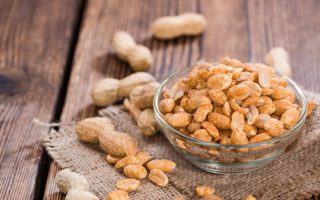
A study published in The Journal of Allergy and Clinical Immunology provides new, more accurate estimates of the number of Americans who may suffer from food allergies. Based on the electronic health records of 2.7 million adults and children in the Boston area, researchers now estimate that around 3.6 percent of the U.S. population suffers from some type of food allergy. This represents less than 1 in 25 people, and is lower than earlier estimates. Previously, researchers had estimated that as many as 5 percent of U.S. adults and 8 percent of children suffered from food allergies.
From the health records of 2.7 million patients, over a period spanning from 2000 to 2013, exactly 97,482 were treated for some form of food allergy. In about half of these cases, symptoms included hives, vomiting and coughing. About 16 percent of these experienced more serious reactions that affected their entire bodies, including anaphylactic shock.
The new data found that the most common causes of food allergies were, in order from most to least common:
- Shellfish
- Fruits or vegetables
- Dairy products
- Peanuts
In addition, the study found that women were more likely to have food intolerance symptoms than men. Among ethnicity, people of Asian descent also had higher allergy incidence than other groups. As has been known for some time, children tended to suffer from food allergies at a higher rate than adults.
Evidence of the hygiene hypothesis
Perhaps the most interesting fact presented in the study is one that has been hotly debated. Researchers found that incidence rates for all food allergies increased each year from 2000 to 2013. This adds to the evidence suggesting that children and adults are more allergic today than in the past, although the scientific community is still unsure why this trend is being observed.

The consensus view among researchers is that children born in the last 30 years were raised in more controlled environments, limiting their access to possible allergens in food as well as in the air. This theory, known as the hygiene hypothesis, remains the most likely candidate for some sort of context around the rise in allergies seen, although it has not been definitively proven.
Still, doctors are developing new health protocols and giving advice to parents that could help alleviate the effects of hygiene on allergy development, if the hypothesis holds true. For example, the New York Times reported that more pediatricians are now advising parents to begin feeding infants food containing peanuts, even babies who are less than six months old. This goes against previous recommendations that infants avoid peanuts. Some speculate that, based on the hygiene hypothesis, this advice may be partially responsible for the uptick in peanut allergies in children and adults. Doctors do warn that the food should only be given in the appropriate form, such as in a powder or as an extract in processed food, and never as whole peanuts, because this may present a choking hazard to young infants.









